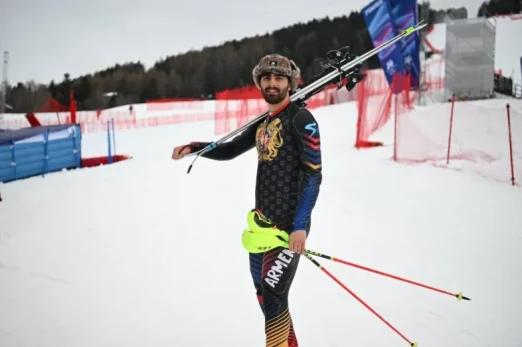A gene obstructing success in sports has been named



The result of Harutyun Harutyunyan in the Winter Olympics is known
The Armenian weightlifting championship has ended. champions and medal winners are known
When is Bayramyan going to end his career?
Winter Olympics. The result of Harutyun Harutyunyan
Armenia will host the European Under-21 Karate Championship
Winter Olympics. Mikayel Mikayelyan is the 53rd
Henrikh Mkhitaryan in the top ten
The opponents of the Armenian national team in the League of Nations are known
Arman Tsarukyan's upcoming rival offered a monetary bet to the Armenian athlete. who is he
Ronaldo has decided to end the boycott
Spertsyan was injured
Araik Harutyunyan was present at the "Aparanian Winter-2026" sports and cultural festival (photos)
Winter Olympics. The result of the first participant of Armenia
Eric Gasparyan completed the grandmaster norm for the second time
Hayk Sargsyan won a silver medal
In England, they found an option for the transfer of Spertsyan
Arsen Harutyunyan has already won three victories in the Tallinn tournament (video)
What was Arman Tsarukyan's most expensive purchase?
Spertsyan assessed Tsarukyan's chances in the UFC
The Armenian football player will continue his career in the Swedish club